- With a troubled history filled with resentment, Japan and South Korea seek to normalize their relations;
- China and North Korea are considered important factors for the rapprochement between Seoul and Tokyo to happen;
- Reconciliation could significantly impact Chinese power in the region and collaborate with US strategy.
The recent rapprochement between Japan and South Korea has the potential to play a significant role in the geopolitical dynamics of the Indo-Pacific region, affecting both US and Chinese interests.
As Tokyo and Seoul seek to overcome their historical differences and strengthen their ties, several shifts in the balance of power and alliances in the region could emerge, with implications for both US strategy and Beijing’s strong influence in East Asia.

The history of troubled relations between Japan and South Korea
Tensions between Tokyo and Seoul have deep roots, such as the period of Japanese occupation and colonization of Korea from 1910 to 1945, which left lasting scars on relations between the two countries.
During the Japanese occupation, Korea was subjected to a series of extremely repressive policies and attempts at cultural assimilation by Japan.
The Korean population has suffered from loss of independence, economic exploitation, restriction of rights and violation of human rights. Many Koreans were forced to work in inhumane and bonded conditions and many Korean women were subjected to sexual slavery by the Imperial Japanese Army.
Tensions increased further during World War II, Japan annexed Korea and imposed its rule over the peninsula. After the Japanese surrender in 1945, Korea was liberated and divided into two countries: North Korea, supported by the Soviet Union, and South Korea, supported by the United States.
Over the next few decades, Japan experienced rapid economic growth and became one of the world’s greatest economic powers, while South Korea also made significant progress.
However, historical tensions continued to affect relations between the two countries. Many Koreans resent the atrocities committed during the Japanese occupation and demand appropriate apologies and compensation from Japan, despite its initial refusal to acknowledge and take responsibility for the facts.
But this rapprochement process is happening. Japan has issued official apologies and established compensation funds. However, these measures are considered insufficient by many South Koreans. In addition, the territorial dispute over the Dokdo Islands (called Takeshima in Japan) has also contributed to bilateral tensions.
These tensions have manifested themselves in many aspects, including politics, economics, culture and sport. However, the relationship between the two countries has recovered.
Recently, the leaders of South Korea and Japan met in a summit, marking a significant step towards improving bilateral relations. During the meetings, they sought an open and frank dialogue to address pending issues and disagreements between the two countries, demonstrating a mutual willingness to overcome differences and find solutions.
Furthermore, they expressed a desire to resume negotiations in areas such as trade, security and historical issues, highlighting a commitment to work towards greater cooperation and problem resolution.
The tendency is for a complete normalization between Japan and South Korea, as well as the historic arch-rivals France and Germany, which today are the two great powers of the European Union.
The China and North Korea factor in the new rapprochement between South Korea and Japan
Due to its current importance on the international stage, China and its relationship with North Korea play an important role in the new rapprochement between Seoul and Tokyo. Since both share maritime borders with Beijing and have a complex relationship with Pyongyang.
As far as relations with China are concerned, both South Korea and Japan have strong commercial and economic ties with the country.
However, growing Chinese influence in the region could also create an incentive for South Korea and Japan to move closer as they seek a balance of power in East Asia, especially on issues such as maritime security and territorial disputes.
As far as territorial disputes between South Korea and China are concerned, the main focus is sovereignty over the Yellow Sea (also known as the West Sea). China claims a large area of the sea, including islands and reefs that are historically controlled by South Korea.
In turn, territorial disputes between Japan and China are mainly related to the Senkaku Islands (called Diaoyu by China). These uninhabited islands, located in the East China Sea, are the subject of claims by both countries. China considers the islands part of its historic territory, while Japan manages and considers them part of its sovereign territory.
Another point of tension between Japan and China was the boycott of rare earth minerals Rare earths are a group of minerals essential for the production of a wide range of high-tech products, including electronics, electric vehicles and renewable energy equipment .
China is the main producer and exporter of these minerals, with a high degree of control over the global market. In 2010, during a territorial dispute between China and Japan over the Senkaku/Diaoyu Islands, China restricted rare earth exports to Japan, creating an “unofficial cote” of these minerals. This had a significant impact on the Japanese industry, which relied heavily on these materials.
On the other hand, South Korea suffered a boycott by the Chinese in its automobile industry. In 2017, following the deployment of the THAAD (Terminal High Altitude Area Defense) missile defense system by the United States in South Korea, China retaliated by adopting restrictive measures and encouraging a boycott of South Korean products, including vehicles manufactured by South Korean automakers. -Korean.
This action had a negative impact on sales and exports of South Korean vehicles to the Chinese market, which was one of the biggest consumer markets for South Korean automakers.
As far as North Korea is concerned, both Seoul and Tokyo have a contentious and hostile relationship with the country. South Korean President Yoon Suk Yeol seeks peaceful denuclearization of the Korean peninsula and improved relations with North Korean leader Kim Jong Un, while Japanese Premier Hiroyuki Hosoda is concerned about the threat posed by Pyongyang’s nuclear and missile programs.
For this reason, North Korea is a relevant factor for coordination between South Korea and Japan to take place. In this way, issues related to regional security and the denuclearization of the Peninsula can be addressed, in search of stability and balance.
How a rapprochement of two of the biggest industrial powers in Asia can benefit the United States in its “Strategy of a Free and Open Indo-Pacific”
The most relevant benefit for the United States due to this approach would be the strengthening of the US military presence in the region that focuses both on the containment of China and North Korea.
Both Seoul and Tokyo have a close defense partnership with Washington and host US military bases in their territories. By improving their bilateral relations, they can facilitate greater coordination and interoperability with US forces, thereby enhancing collective defense capability in the region.
Furthermore, the rapprochement between Japan and South Korea can promote greater stability and security in the Indo-Pacific region. Historical tensions between these two countries have been a source of concern for the United States, as they could undermine regional cooperation and create instability.
So, reconciliation and greater trust between Japan and South Korea could help to mitigate these tensions, creating a more conducive environment for the implementation of the US strategy, which seeks to promote a peaceful and stable Indo-Pacific, in addition to containing the Chinese power in the region.
So, in addition to Japan and South Korea having their own concerns about Chinese influence, these countries also share common strategic interests with the United States in possible containment of China and support for Taiwan in the event of an invasion.
As a result, this trilateral cooperation could strengthen the capacity of such countries to respond to regional challenges, promoting a freer and more open environment in the Indo-Pacific, counterbalancing China’s power.
The historical and geopolitical importance of the potential normalization of relations between Japan and the Republic of Korea (South)
The normalization of relations between Japan and the Republic of Korea has significant historical and geopolitical importance for the region and for stability in East Asia.
First, it would allow for historic reconciliation and healing of the wounds caused by the period of Japanese occupation in Korea. This could help heal the scars of the past and promote deeper mutual understanding between the Japanese and Korean peoples.
Furthermore, rapprochement would bring a sense of justice to victims and their families, especially with regard to comfort women and other crimes committed during World War II.
From a geopolitical point of view, the normalization of relations between Seoul and Tokyo will strengthen stability and cooperation in the region, as both are important political and economic actors in East Asia, and their cooperation could boost regional development, technological advancement and, also, the resolution of military questions.
As a consequence, China will be negatively affected, while the United States will be able to take advantage of the new situation, strengthening the implementation of its strategies in the region.
Ultimately, it is essential that these advances are achieved on the basis of honesty, mutual understanding and respect for past events, in order to ensure a lasting and beneficial partnership for all involved.
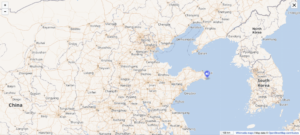

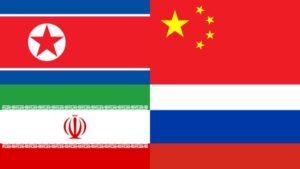
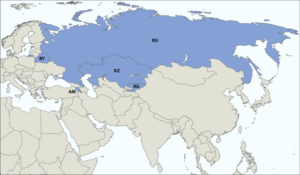

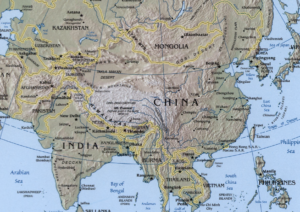

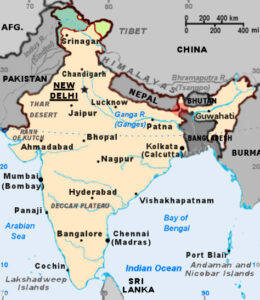


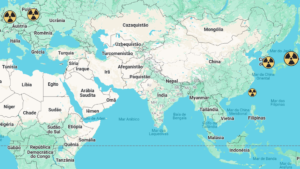

[…] the emergence of China as the largest bilateral creditor in the world – consequently reducing the search for developing […]
[…] near the city of Harbin, Heilongjiang province, in northeastern China, a region then occupied by Japan during World War II. The victims were mainly Chinese civilians, but also included prisoners of war […]